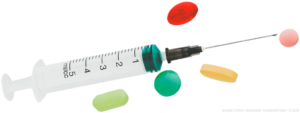 BARCELONA—During EULAR 2025, Isabelle Peene, MD, PhD, Ghent University Hospital and Unit Molecular Immunology and Inflammation, Belgium, reported positive results from a phase 2 study of intravenous (IV) efgartigimod alfa-fcab (Vyvgart) for patients with primary Sjögren’s disease.1
BARCELONA—During EULAR 2025, Isabelle Peene, MD, PhD, Ghent University Hospital and Unit Molecular Immunology and Inflammation, Belgium, reported positive results from a phase 2 study of intravenous (IV) efgartigimod alfa-fcab (Vyvgart) for patients with primary Sjögren’s disease.1
Primary Sjögren’s disease is a chronic, systemic, autoimmune disease characterized by lymphocytic infiltration and progressive, immune-mediated dysfunction of the exocrine glands. B cell activation plays a central role in disease development, resulting in the production of immunoglobulin (Ig) G autoantibodies—especially those that target Sjögren’s disease-related antigens A/Ro and B/La ribonuclear complexes—and rheumatoid factor, as well as elevated levels of serum IgG.2 Currently, no systemic disease-modifying medications are approved by the U.S. Food & Drug Administration (FDA) to treat primary Sjögren’s disease.
The Agent
Efgartigimod alfa-fcab is a neonatal Fc receptor (FcRn) blocker, a human IgG1 antibody fragment that binds to the neonatal Fc receptor, resulting in the reduction of circulating IgG.
On Dec. 17, 2021, the FDA approved IV efgartigimod alfa-fcab as an orphan drug for the treatment of generalized myasthenia gravis in adults who are anti-acetylcholine receptor (AChR) antibody positive.3 Subsequently, the FDA approved efgartigimod alfa-fcab and efgartigimod alfa combined with hyaluronidase-qvfc (Vyvgart Hytrulo) for in-home use.4,5 Efgartigimod alfa and hyaluronidase-qvfc, an endoglycosidase, is also FDA approved for the treatment of generalized myasthenia gravis and chronic inflammatory demyelinating polyneuropathy.6
In June, the FDA granted efgartigimod a fast-track designation for the treatment of primary Sjögren’s disease.7 Additionally, Argenx, the manufacturer of efgartigimod, announced results from another phase 2 study of efgartigimod alfa-fcab and efgartigimod alfa combined with hyaluronidase-qvFC in idiopathic inflammatory myopathies (i.e., myositis).7
The Findings
The study from Peene et al. was a phase 2, proof-of-concept, clinical trial of IV efgartigimod alfa-fcab in patients with primary Sjögren’s disease. Its results demonstrated significant improvements in systemic disease activity and patient symptoms, as well as a favorable safety profile.1
At week 24, 45.5% of patients receiving efgartigimod alfa-fcab achieved improved outcomes on the Composite of Relevant Endpoints for Sjögren’s Syndrome (CRESS) scale, the study’s primary end point, which includes systemic disease activity and salivary and tear gland function. For comparison, 11.1% of patients treated with placebo achieved improved outcomes on CRESS.
Patients treated with efgartigimod alfa-fcab experienced rapid biomarker responses, with a sustained reduction in IgG (approximately 60%) beginning at week 4. This response indicates that targeting FcRn and reducing IgGs has a meaningful impact on disease.



